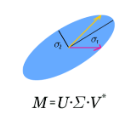The time-marching strategy, which propagates the solution from one time step to the next, is a natural strategy for solving time-dependent differential equations on classical computers, as well as for solving the Hamiltonian simulation problem on quantum computers. For more general linear differential equations, a time-marching based quantum solver can suffer from exponentially vanishing success probability with respect to the number of time steps and is thus considered impractical. We solve this problem by repeatedly invoking a technique called the uniform singular value amplification, and the overall success probability can be lower bounded by a quantity that is independent of the number of time steps. The success probability can be further improved using a compression gadget lemma. This provides a path of designing quantum differential equation solvers that is alternative to those based on quantum linear systems algorithms (QLSA). We demonstrate the performance of the time-marching strategy with a high-order integrator based on the truncated Dyson series. The complexity of the algorithm depends linearly on the amplification ratio, which quantifies the deviation from a unitary dynamics. We prove that the linear dependence on the amplification ratio attains the query complexity lower bound and thus cannot be improved in general. This algorithm also surpasses existing QLSA based solvers in three aspects: (1) the coefficient matrix $A(t)$ does not need to be diagonalizable. (2) $A(t)$ can be non-smooth, and is only of bounded variation. (3) It can use fewer queries to the initial state. Finally, we demonstrate the time-marching strategy with a first-order truncated Magnus series, while retaining the aforementioned benefits. Our analysis also raises some open questions concerning the differences between time-marching and QLSA based methods for solving differential equations.
翻译:将解决方案从一个时间步骤传播到下一个时间步骤的全时战略是解决古典计算机基于时间的差别方程式以及解决量子计算机汉密尔顿模拟问题的自然战略。对于更一般的线性差别方程式来说,基于时间的量子求解器可能因时间步骤数的指数性消散成功概率而受损,因此被视为不切实际。我们反复使用一个叫做统一单值放大的技巧来解决这个问题,总的成功概率可以受一个独立于时间步骤数量以外的数量约束而降低。使用压缩 Gardget Lemma可以进一步提高成功概率。对于更普通的线性差方程式(QLSA)来说,一个基于时间序列的全时化战略的性能以高分级为标准。它只能依靠一个直线性化的精度比值来降低成功率,它能通过压缩缩放量的音量来降低偏离时间步骤的数量。我们证明,对于初始的量式方程式的直线性偏差可以进一步提高。我们无法证明,对于当前变数的精确性A的直线性直线性直线性直径直径直径直径直径直径直径直径直径直径直径直分析,同时也无法算。


